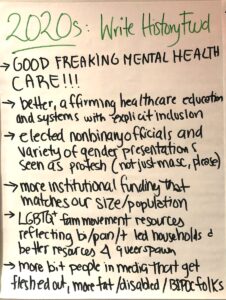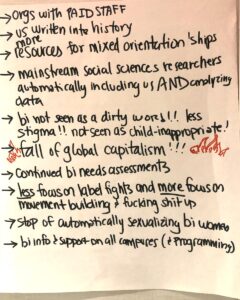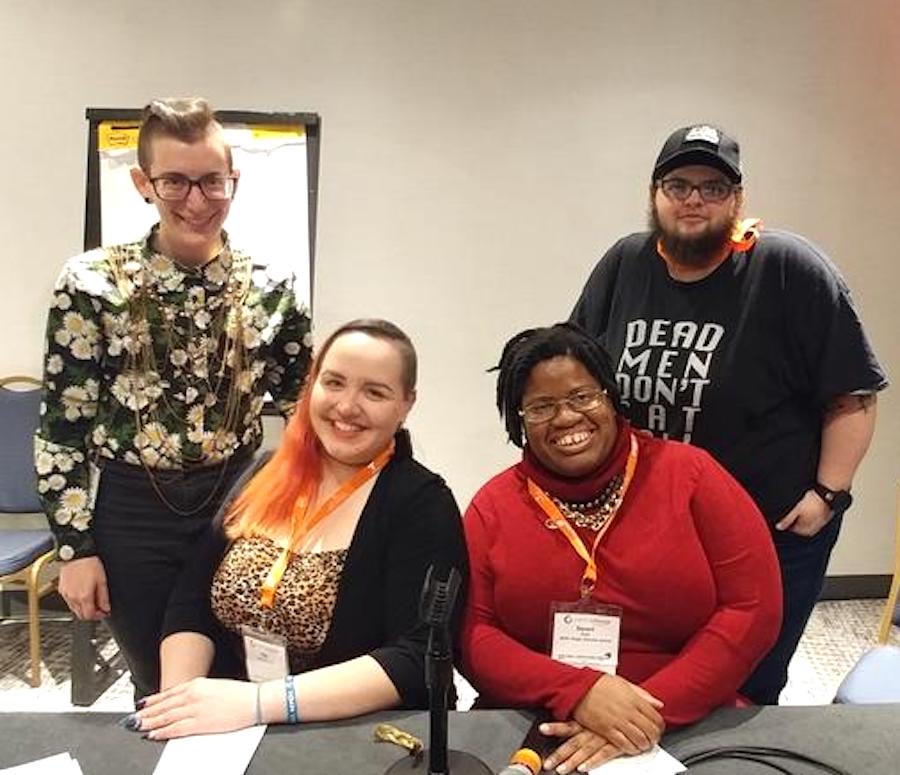CC 2019: Redefining Activism
By Gabrielle Blonder
The first workshop I attended at Creating Change 2019 nearly brought me to tears. It was entitled “activism for introverts,” focusing on how to use our quiet, often-overlooked strengths to affect change, and recognize the differences we make in our everyday lives even when not at the forefront of the protest rallies. A quote from the ensuing discussion quickly stuck in my heart and became my steady mantra for the weekend: “We can often get so caught up in our own heads that we lose sight of the differences we make in our day-to-day lives.”
Friday night, several of my fellow board members and I were eating dinner in a restaurant attached to the hotel. As we started our drinks, one member of the waitstaff came up to tell us how excited they were that our conference was in their hotel and how much they’d been learning from talking to the participants. We gave them some BRC buttons and, throughout the course of our meal, answered several servers’ eager questions about gender and the importance of pronouns. By the end of our brief conversation, our waitress was fluently checking people’s pronoun badges before addressing them, thrilled to have learned about this new facet of identity.
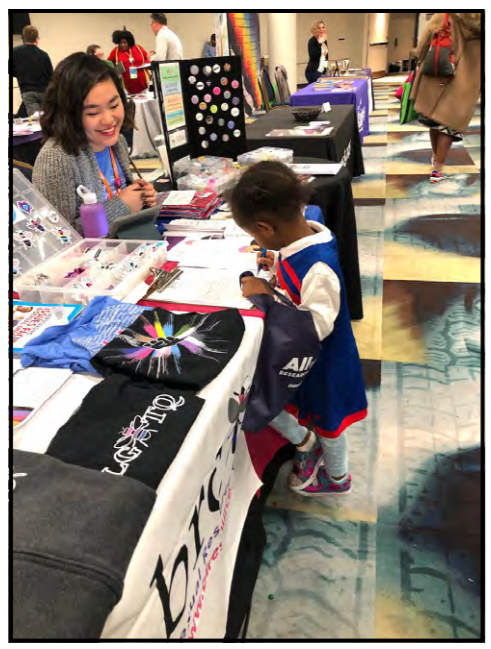
A trans teenager told us he’d never been in a queer space before. He had arrived as a guest of a conference presenter and therefore didn’t have his own badge. Upon overhearing him lament that he wouldn’t be able to get into the ball that night because of his lack of badge, an older stranger in the elevator gave him his own, urging him to go to and thoroughly enjoy as many events as he could. He couldn’t stop talking about how much it meant to him to be able to be there.
At least one woman stopped by our table and nearly cried, saying she hadn’t known bi-specific organizations existed and had never felt so validated. Several performers at the bi+ open mic event I was lucky enough to run Saturday night talked about how relieving it was to present their art in a space where they knew they’d be fully understood. Simply by being there and holding space, we were able to make a huge difference in others’ lives. This was my third Creating Change, and, above all, every year I leave with renewed resolve and a myriad of ideas for small ways to effect positive differences in the world.
I often half-jokingly refer to myself as “an accidental activist.” I started going to a bi+ group several years ago because I desperately needed the support and community. I kept attending, slowly becoming more and more involved as needs arose, strengthened as much by what I was getting as what I was giving. Eventually, somehow, I ended up in front of an eager, enthusiastic crowd at nine a.m. on the final morning of an incredible four-day long conference, leading a workshop on centering joy in bi+ spaces. There were an infinite number of tiny individual decisions and interactions that led to that moment, and the vast majority of them seemed insignificant at the time. My point in this backstory is: Don’t ever underestimate your power.
Activism isn’t a noun; it’s a verb. A shifting, modifiable, fluid verb. You don’t have to “be an activist” to make change. Sometimes, activism is a single conversation. Sometimes, it’s pulling yourself out of your comfort zone just enough to inspire others to action. Sometimes it’s buying a snack for someone to power them through their next rally. Sometimes it’s simply having the courage to be yourself in a world that seems to wish otherwise. Never let your unique contributions to the world get washed away in your preconceptions of the “Big Picture.”
Because after all, every movement has a first step.
Gabrielle Blonder has been a board member of the Bisexual Resource Center for about four years. In her spare time, she writes, makes art, and spins fire.
The Bi+ Institute at CC 2019
By Belle Haggett Silverman
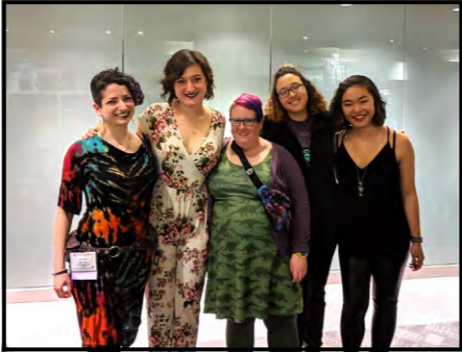
It was standing room only at the 2019 Creating Change Bi+ Institute. Not only were there many people gathered to spend an entire day discussing and learning about bi+ issues, they brought a multitude of perspectives, backgrounds, and visions for the future. In that room we had queerspawn, mothers, students, elders, pansexuals, demisexuals, many genders, many colors, and many more folx whom categories have yet to capture. Together, we were able to find a spirit of learning and engaging to lead us into a more powerful bi+ community moving forward.
We were led by a knowledgeable and thoughtful group of leaders in the bi+ community. Denarii Grace, an activist and creative; Andy, a lawyer; AL, a member of the Bisexual Organizing Project; and Aida Manduley, LCSW, a therapist and educator. Robyn Ochs facilitated a lesson on bi+ history. Our discussions centered on identity and our experience in queer and mainstream communities. Our learning spanned topics including bi+ history, sexual violence, sex and sexual health, religious experience, media, and terminology. Andy centered us in calming, empowering ritual to go forth and succeed throughout the Creating Change conference.
Why is it that today, in 2019, we still need to bring bi+ people together for a day of working, communing, and sharing? This was best captured when the skillful facilitators asked us to consider community. Who is our community, and how could we tell? Many people in the room expressed an unfortunately unifying thought: we lack community. Inside queer spaces, throughout mainstream US culture, in our families, among our friends, and in our workplaces, many bi+ people feel as if we cannot be our full selves without facing discrimination, dismissal, or disgust. We would know we found our community when we can share with people without fear, and be met with wholehearted, nourishing recognition and validation. We must commit, as bi, pan, omni, and other multisexual identities, to come together and build community where none is found.
Together, we set a course for what’s next for the bi+ community. In Robyn’s bi+ history segment, we were asked to write our history forward by envisioning what we want to achieve in the 2020s and beyond. We envision more funding, more education, more resources. We envision less stigma, less discrimination, less sexualization. We envision intersectional and interconnected identities working together, and a community bolstered by representation throughout our cultures. And through this vision, the bi+ community is poised to act for a better future.
Belle Haggett Silverman is a nonprofit professional and President of the Bisexual Resource Center board of directors.
